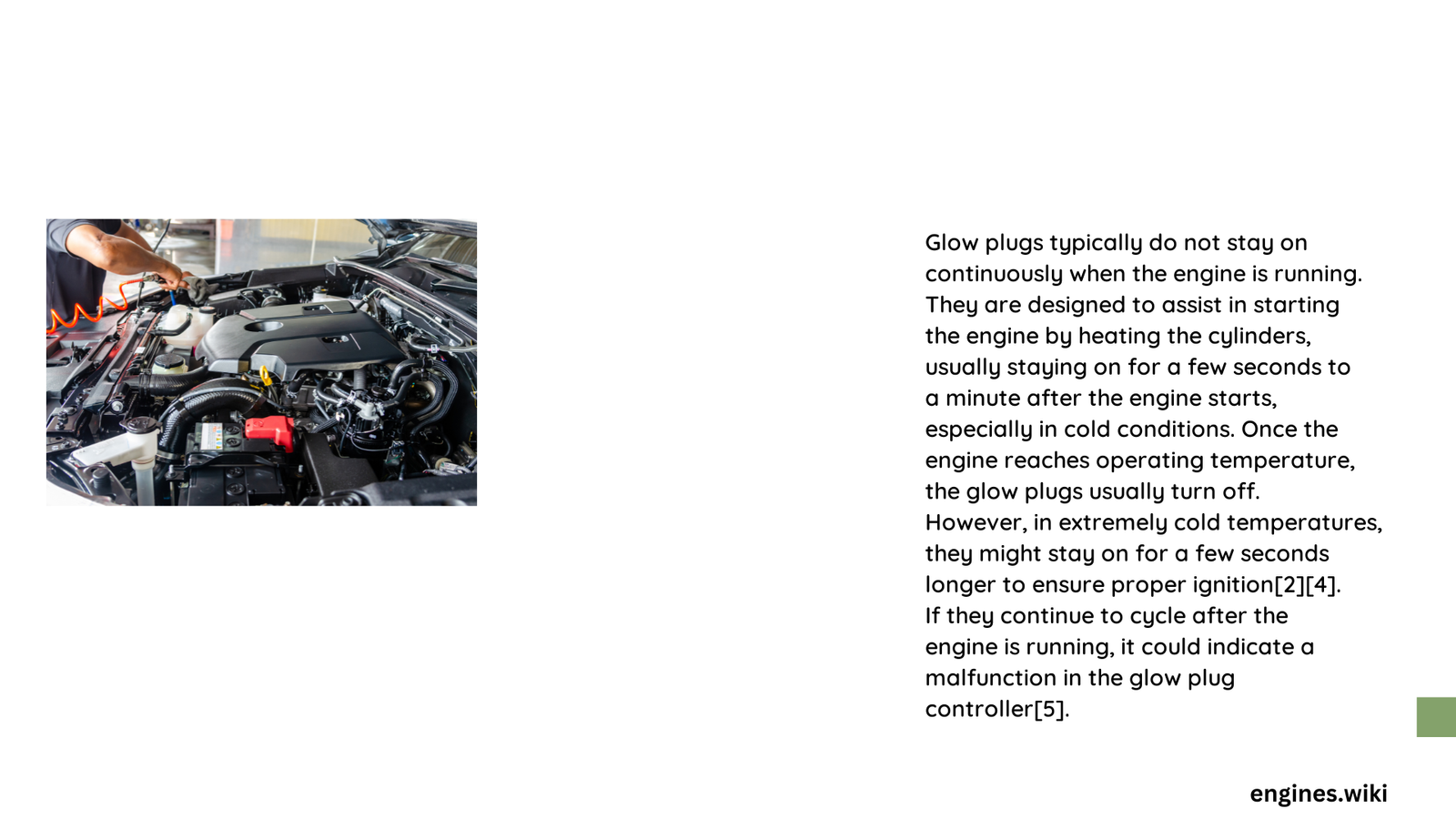Diesel engines rely on glow plugs as critical components for efficient cold-start and operational performance. Understanding whether glow plugs remain activated during engine operation involves complex electrical and thermal dynamics that vary based on multiple environmental and mechanical factors. Glow plugs do not continuously stay on when the engine is running, but they can experience intermittent activation under specific conditions, making their behavior nuanced and technologically sophisticated.
What Happens to Glow Plugs After Engine Start?
Glow plugs undergo a strategic operational sequence during diesel engine performance:
Do Glow Plugs Remain Active Immediately After Starting?
- Initial Post-Start Phase: Glow plugs enter an after-glow period lasting 2-3 minutes
- Temperature-Dependent Activation: Continued energization based on engine coolant temperature
- Voltage Modulation: Reduced from initial high-voltage pre-heat to stabilized lower voltage
What Determines Glow Plug Operational Status?
| Condition | Glow Plug Response | Duration |
|---|---|---|
| Cold Start | High Voltage Activation | 2-15 seconds |
| After Engine Start | Reduced Voltage | Up to 3 minutes |
| Warm Engine | Minimal/No Activation | Negligible |
How Do Environmental Factors Impact Glow Plug Function?
Glow plug behavior is influenced by:
- Ambient Temperature
- Lower temperatures extend after-glow duration
-
Higher temperatures reduce activation time
-
Engine Coolant Temperature
- Below 44°C (112°F): Longer after-glow phase
- Above 44°C: Minimal glow plug activation
What Are Technical Specifications for Glow Plug Operation?
Electrical Characteristics:
– Pre-heat Voltage: Approximately 11 volts
– Running Voltage: Reduced to around 6 volts
– Resistance Range: 0.1 to 6 Ohms
– Pulse-Width Modulation (PWM) Used for Precise Control
Can Glow Plugs Activate During Warm Engine Conditions?
Modern diesel systems might activate glow plugs during:
– Diesel Particle Filter (DPF) Regeneration
– Specific Emission Control Scenarios
– Advanced Engine Management Strategies
Diagnostic Techniques for Glow Plug Monitoring

Professionals employ multiple methods to assess glow plug functionality:
- Resistance Measurement
- Use multimeter to check glow plug electrical integrity
-
Verify resistance within specified range
-
ECU Diagnostic Scanning
- Read error codes related to glow plug performance
-
Monitor voltage and current supply
-
Visual Indicator Checks
- Observe Wait-To-Start Indicator Lamp behavior
- Verify proper pre-heat and post-start sequences
Key Takeaways
- Glow plugs do not continuously stay on during engine operation
- After-glow phase typically lasts 2-3 minutes
- Activation depends on temperature and engine conditions
- Modern systems allow intermittent activation for specific purposes
